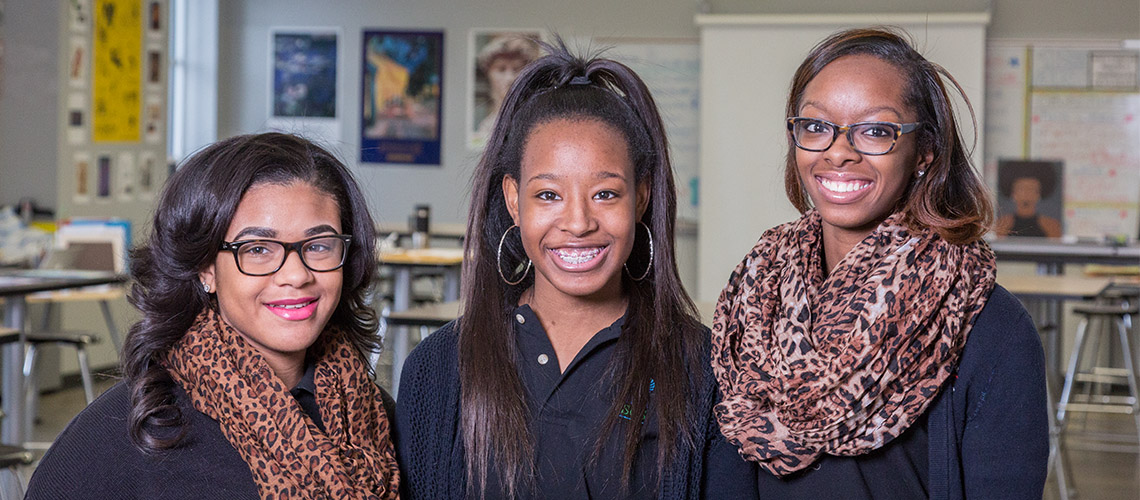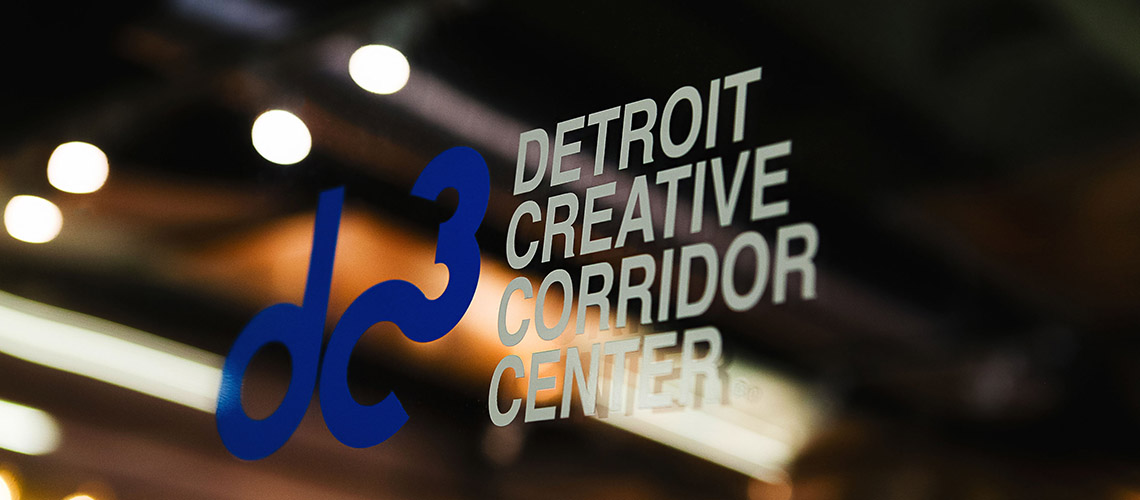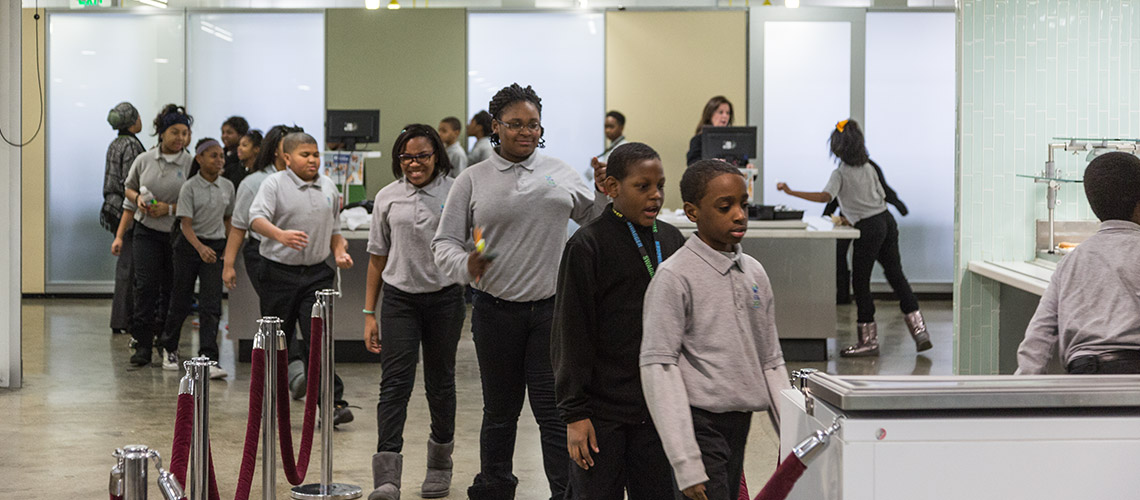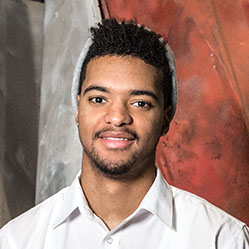
Bankruptcy, bailouts and blight may have put Detroit in recent news, but a wave of development in its New Center area is giving the city another reason to make headlines. On any given day and in all types of weather, cement trucks, cranes and construction crews work on projects that are restoring the Motor City to the engine of innovation it once was.
One of the most exciting projects is the A. Alfred Taubman Center for Design Education at the College for Creative Studies (CCS). Built in 1928, the 12-story Art Deco-style building underwent a $145 million renovation in 2008, bringing together a top design center, a nationally recognized brand and a charter school for inner city youth.
“The goal of the Taubman Center project is to bring a greater density of creative people to Detroit,” says Rick Rogers, President of CCS, one of the nation’s top three design schools. “We wanted to attract larger creative businesses from the suburbs and other parts of country and bring them here.”
They couldn’t have picked a more perfect spot. Formerly named the Argonaut Building, the Taubman Center was home to General Motors’ Research Laboratory from 1936 to 1956. It included the first in-house automotive research and design studio, and was the spot where famed designer Harley Earl sketched the Corvette and the Cadillac, and originated clay modeling for automotive design. But then businesses started moving to the suburbs, and vacancy signs took their places.
“The building sat dark for 10 years,” says Rogers. “It was one more gigantic unoccupied building in Detroit, contributing to a lack of vitality and sense of hopelessness. We brought this building back to life and created activity.”
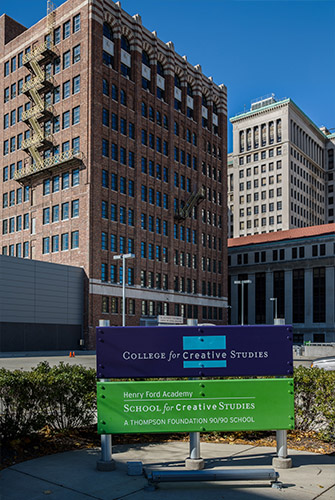
The size of a city block, The Taubman Center sat vacant for a decade until the team at CCS worked with Capital Impact to finance the renovation of this historic building and support the revitalization of the New Center area of Detroit.
“Capital Impact Partners played a critical role in [our] financing, and we were able to fulfill an ambitious vision for the institution. As a result, the college is making an even greater contribution to the revitalization of Detroit.” – Rick Rogers
GM owned the building and was willing to donate it, but CCS had to assume the renovation and operating costs. At 760,000 square feet, it presented an opportunity for CCS to create a second campus and expand its programs as well as implement projects the school had in its long-term plans.
“Capital Impact Partners played a critical role in [our] financing, and we were able to fulfill an ambitious vision for the institution,” says Rogers. “As a result, the college is making an even greater contribution to the revitalization of Detroit.”
Senior Loan Officer Melinda Clemmons says supporting the Taubman Center fit Capital Impact Partners’ mission-driven lending approach: “Rick shares our vision that inclusive growth is vital to Detroit’s future – including a charter school demonstrated that,” he says.
The Henry Ford Academy (HFA) School for Creative Studies offers an education alternative for nearly 900 of the area’s low-income residents in grades six through 12. Adding a charter school to its campus was a forward-thinking approach and better integrates the Taubman Center in the community.
Housed inside the Taubman Center, The Henry Ford Academy Charter School, expands access to a quality education for Detroit’s youth.
“We had been interested in doing a charter school for years with art at the core of the curriculum,” says Rogers. “High school art programs are declining, especially for inner city kids. There is a low representation of minorities in design professions, especially African Americans. CCS is in an African American city, and we felt a responsibility to create more opportunities for African Americans to get into design professions.”
HFA students share the building with approximately 1,300 CCS students, some of whom live on site. The building also provides space for the Detroit Creative Corridor Center, an incubator for creative enterprises. The location attracted several entrepreneurs and small businesses, including Shinola, a company that produces watches and bicycles on site and ships them around the world.
The Detroit Creative Corridor Center – a business incubator – is among the innovative tenants who have set up shop at The Taubman Center
“One of my favorite spaces in the building is the cafeteria that serves everyone,” says Ian Wiesner, senior loan officer for Capital Impact Partners. “Seeing the different groups coming together – from students to entrepreneurs – provides you with a sense of the energy and cross pollination that this project creates. This building isn’t just exciting because it brings people to New Center; it’s exciting because it brings together a diverse group of people in a place with a strong connection to the city’s creative, industrial history.”
The Taubman Center cafeteria is a unique shared space that allows students, entrepreneurs and business leaders to mingle and create strong connections.
And the impact is measurable. “[The Taubman Center] has been a huge contributor to the economy of the city,” says Rogers, who estimates that the project created 1,500 temporary jobs during its construction and 500 permanent jobs. “Capital Impact Partners helped us expand our impact within the city and beyond, and we’re very grateful for that. The building itself is a real symbol of the innovation and energy that exists in Detroit. Two thousand people come through our doors each day, and we want to send them home with positive stories about Detroit.”
